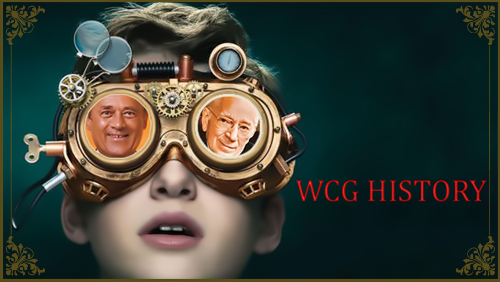
Armstrongists are unlikely to accept anything that refutes their views: Herbert Armstrong said it; they believe it; that is that. Herbert Armstrong is the arbiter of all truth. No one in the Cult of Herbert Armstrong Mafia wants to learn anything about opposing views, no matter what the evidence may be or what science can disprove. This is especially true in the realm of British Israelism and prophecy, Sabbaths and holydays, church eras, tithing, authority and paganism. The Old Testament is in effect unless specifically done away in the New Testament unless its inconvenient to Armstrongism.
There is a scientific and rather unflattering scientific reason for this: The brain of the Armstrongist is wired that way. The brain itself will reject anything that it is not wired to accept.
To understand the background of this, watch the video about how conservative and liberals that look and act differently. Follow the additional information at The National Journal discussing the Battle for your Brain.
By extension, Armstrongists think differently than non Armstrongists because their brains are wired quite differently: It’s biology — something that you can’t just talk your way out of (or in to).
We’ve seen this on blogs and websites over and over again: There is no basis for any real discussion because the brains of Armstrongists are incapable of receiving truth.
As Brian Resnick says, it isn’t clear at this point whether the brains in questions are that way from the beginning or if they have been changed at some time in the past. Did Herbert Armstrong attract people whose brains were wired a certain way or did exposure to Herbert Armstrong actually change the brains of his followers?
This certainly explains rather handily why people continue to follow David Pack no matter how outrageously his prophecies fail. Ronald Weinland followers in the PKG are unlikely to leave the fold at this point, even though he has been convicted of five counts of felony for Income Tax Evasion and was sent to prison by a jury of his peers. People will likely follow the false prophet of sixty years, Roderick Meredith in spite of what Jesus said in Matthew 7:15 because they are wired that way. PCG members are likely to continue to bear the heavy burdens of Gerald Flurry for the duration. Congregants will continue to attend the UCG and CoGWA in spite of the fact that there’s little difference between them, because the followers are hard wired to accept the preachments of sects. No one can offer scientific facts. People are unimpressed that DNA evidence refutes British Israelism. False prophecies are passed off as mere speculation even though they might be signed “In Jesus’ Name”. Armstrongists will continue to conveniently ignore the Bible when it shorts out their wiring and might blow their fuse.
And that’s a good explanation why Armstrongists won’t change: They are wired wrong.
